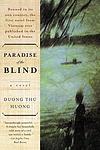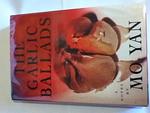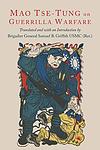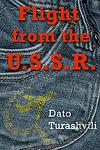Genres
The "Political" category of books encompasses works that explore the theory, practice, and history of government and politics. These books may cover topics such as political ideologies, political systems, political institutions, political movements, and political leaders. They may also examine the relationship between politics and other areas of society, such as economics, culture, and international relations. Political books can be both informative and thought-provoking, offering readers insights into the complexities of the political world and the challenges of governing in a democratic society.
Date Range
Reading Statistics
Click the button below to see how many of these books you've read!
Download
If you're interested in downloading this list as a CSV file for use in a spreadsheet application, you can easily do so by clicking the button below. Please note that to ensure a manageable file size and faster download, the CSV will include details for only the first 500 books.
Download-
1. Quotations from Chairman Mao by Mao
This book is a collection of speeches and writings by the former leader of the People's Republic of China. It covers a wide range of topics including communism, revolution, class struggle, and the correct handling of contradictions among the people. The book was published with the intention of promoting the leader's ideology and was widely distributed during the Cultural Revolution. It was considered an essential guide to life and politics in China during this period.
-
2. Home and the World by Rabindranath Tagore
This novel is a political and philosophical exploration set in early 20th century India during the country's struggle for independence. It revolves around three main characters: a nobleman, his wife, and his friend, a fervent nationalist. The story unfolds as the wife, initially confined to the inner quarters of their home, begins to question her societal boundaries and the idea of nationalism after meeting her husband's friend. The narrative delves into the complexities of love, freedom, and the concept of home and world, set against the backdrop of the Swadeshi movement, a part of the Indian independence movement against British rule.
-
3. Paradise of the Blind by Dương Thu Hương
"Paradise of the Blind" is a poignant tale of a young Vietnamese woman's journey through life amidst the socio-political upheavals of her country. The narrative follows her struggle to reconcile her familial duties with her own personal aspirations, as she navigates through the complexities of her relationships with her mother and aunt. The book provides a critical examination of the Communist regime in Vietnam, its impact on the traditional Vietnamese family structure, and the cultural and societal changes it brought about.
-
4. The White Tiger by Aravind Adiga
"The White Tiger" is a darkly humorous novel set in modern-day India that explores the country's class struggle through the eyes of an ambitious and cunning protagonist. Born in a poor village, he moves to Delhi to work as a chauffeur for a rich family. He eventually breaks free from his life of servitude by committing an act of shocking violence, and uses his newfound freedom to become a successful entrepreneur in Bangalore. The story, told through a series of letters written to the Chinese Premier, is a scathing critique of India's social and economic disparities, and the corruption that permeates all levels of society.
-
5. Half of Man is Woman by Zhang Xianliang
This novel provides a deeply personal account of the author's experiences during China's Cultural Revolution and his subsequent imprisonment in a labor camp. The protagonist struggles with the harsh realities of his imprisonment, including starvation and physical abuse, while also grappling with his own identity and the societal expectations of masculinity. His release and subsequent marriage only further complicate his quest for self-understanding, as he navigates the challenges of reintegrating into society and maintaining a relationship with a woman who has her own traumatic past.
-
6. Resources, Values And Development by Amartya Sen
"Resources, Values, and Development" is a comprehensive examination of the interplay between the availability of resources, the values that guide their use, and the resulting impact on development. The book challenges traditional economic measures of development, such as GDP, and argues for a broader understanding that incorporates human welfare and freedom. It delves into the role of ethics in economics, the importance of individual capabilities, and the need for equity in the distribution of resources. The author's influential ideas on development economics and social choice theory are presented, advocating for a more humane and inclusive approach to economic development that prioritizes the enhancement of human lives over mere economic growth.
-
7. The Reluctant Fundamentalist by Mohsin Hamid
The novel is a monologue by a young Pakistani man, Changez, who tells his life story to an American stranger in a café in Lahore. Changez recounts his journey from a scholarship student at Princeton to a high-flying job in a prestigious New York valuation firm and his subsequent disillusionment with the American Dream post 9/11. The story explores themes of identity, love, and the shifting global power dynamics, as Changez grapples with his feelings towards America, his native Pakistan, and his love interest, Erica. The narrative ends ambiguously, leaving the reader to interpret the true nature of Changez and his American listener's relationship.
-
8. The Garlic Ballads: A Novel by Yan Mo
The novel is a harsh critique of the Chinese government's agricultural policy. Set in 1980s China, it tells the story of the farmers of Paradise County, who are encouraged by the government to plant garlic, only to find that the government can't or won't buy their crops, leading to violent protests. The narrative is centered around three characters - Gao Yang, who has been arrested for leading the protests; his blind father, Gao Ma, who continues to struggle with the garlic harvest; and Jinju, the woman both men love. The book is a powerful exploration of corruption, love, the human spirit, and the struggle for justice in an oppressive regime.
-
9. On Guerilla Warfare by Mao
The book is a seminal work on irregular warfare and revolutionary strategy authored by a prominent 20th-century leader. It outlines the tactics and philosophy behind guerrilla warfare, emphasizing the importance of mobile and flexible combat strategies as a means for smaller, less-equipped forces to combat and ultimately defeat larger, conventional armies. The author discusses the integration of political and military efforts and the necessity of popular support among the local populace to sustain such movements. The work has been influential in various revolutionary movements around the globe, providing a tactical framework for conducting insurgency operations.
-
10. Development As Freedom by Amartya Sen
The book in question is a seminal work in the field of economics and development studies, which argues that true development is best understood as the process of expanding the real freedoms that people enjoy. It challenges traditional indicators of growth, such as GDP, suggesting that they fail to capture the essence of human well-being. Instead, it posits that development should be assessed by the range of choices available to individuals, including access to education, healthcare, and the ability to participate in the economic and political life of society. The author emphasizes the interdependence of various types of freedoms, from political rights to economic opportunities, and the role they play in empowering people to live the lives they value.
-
11. Somersault by Kenzaburō Ōe
The novel explores the aftermath of a failed doomsday cult in Japan, led by two men who had prophesied an apocalypse that never occurred. After their prophecy fails, they attempt to disband the cult but struggle as their followers resist and violence ensues. The leaders try to rebuild their lives amidst the chaos, grappling with their guilt and the consequences of their actions. The book is a deep exploration of faith, redemption, and the power of belief.
-
12. Flight From The Ussr by Dato Turashvili
"Flight From The USSR" is a gripping and poignant memoir that follows the life of a young Georgian boy, who grows up under the oppressive regime of the Soviet Union. As he navigates the complexities of his turbulent homeland, the protagonist finds solace in his love for literature and dreams of escaping to the West. Faced with numerous challenges and heart-wrenching choices, he embarks on a daring journey that takes him across borders, revealing the resilience of the human spirit in the face of adversity.
-
13. Coolie by Mulk Raj Anand
"Coolie" is a poignant and powerful novel that delves into the life of Munoo, a young boy from a small village in India who is forced into a life of labor as a coolie. Set during the British colonial era, the story explores themes of exploitation, poverty, and the harsh realities faced by the lower classes. Munoo's journey takes him from his village to bustling cities, encountering both cruelty and kindness along the way, ultimately shedding light on the injustices of the time.
-
14. Kanthapura by Raja Rao
"Kanthapura" is a powerful novel that tells the story of a small South Indian village as it becomes embroiled in the struggle for independence from British rule. Through the eyes of a young woman named Moorthy, the reader witnesses the transformation of the village and its people as they are inspired by the teachings of Mahatma Gandhi and join the fight for freedom. The novel explores themes of unity, sacrifice, and the power of nonviolent resistance, offering a poignant portrayal of the impact of colonialism on rural communities and the strength of the human spirit.
-
15. The Association Of Small Bombs by Karan Mahajan
"The Association of Small Bombs" by Karan Mahajan is a novel that explores the aftermath of a bomb blast in Delhi, India. The story follows the lives of two families affected by the tragedy, as well as the bomber himself. Through their perspectives, the novel delves into themes of grief, revenge, and the complexities of terrorism. Mahajan's writing is both intimate and expansive, offering a nuanced portrayal of the human impact of violence.
Reading Statistics
Click the button below to see how many of these books you've read!
Download
If you're interested in downloading this list as a CSV file for use in a spreadsheet application, you can easily do so by clicking the button below. Please note that to ensure a manageable file size and faster download, the CSV will include details for only the first 500 books.
Download













